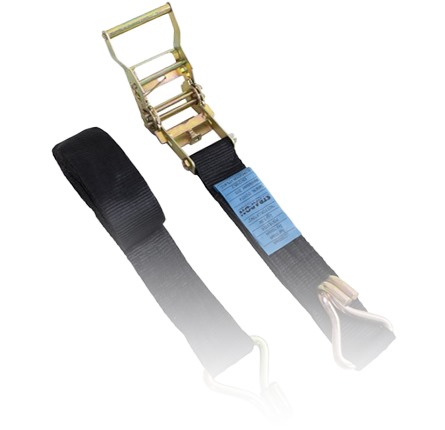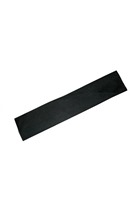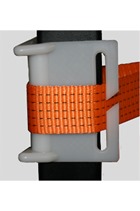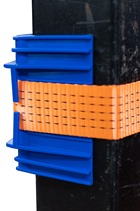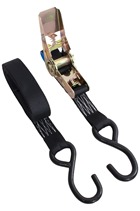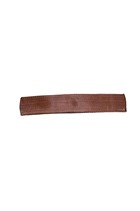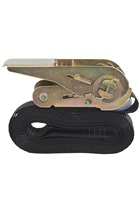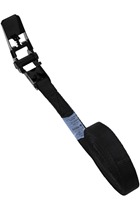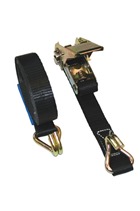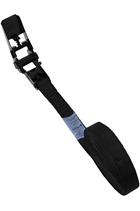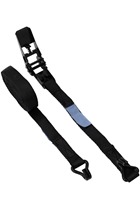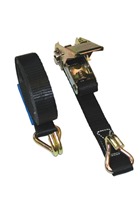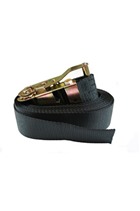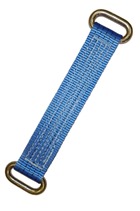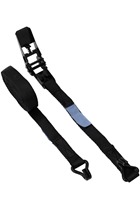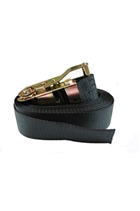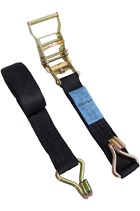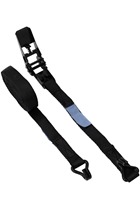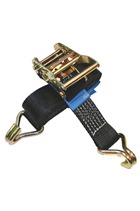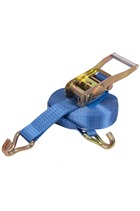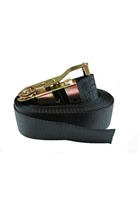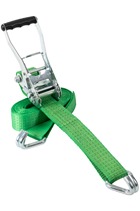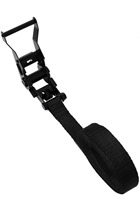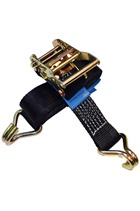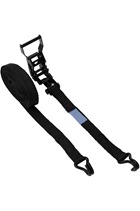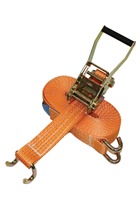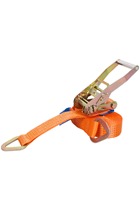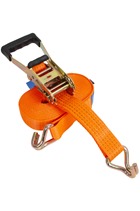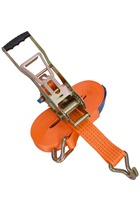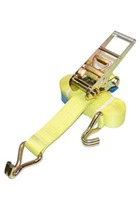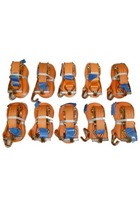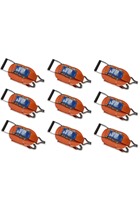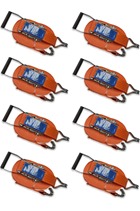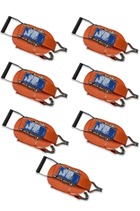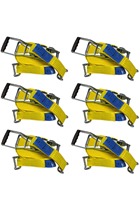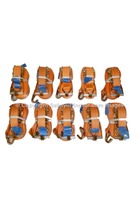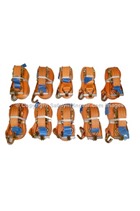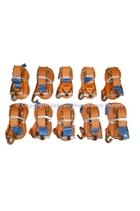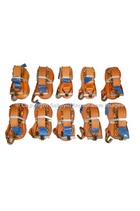What are ratchet straps?
A ratchet strap consists of a ratcheting mechanism and a webbing strap. Ratchet straps (also called tie-down straps or lashing straps) are used to secure loads for transport. We have endless ratchet straps available.
The tie-down straps themselves are usually made out of polyester webbing and come in a variety of different sizes depending on what you're ratcheting down. You’ll often find ratchet straps with hooks - these help to secure the load.
Tie-down ratchet straps are often used to secure loads that are being transported by trailer, van, lorry or flatbed truck. They are also used to secure cargo shipped by air and sea - the ratchet strap is a supremely versatile piece of equipment!
To learn more about securing loads, the types of load that have to be secured, and the potential consequences of failing to do so, here's some guidance from the Driver & Vehicle Standards Agency.
What is a ratchet strap minimum breaking strength (MBS)?
Different ratchet straps have different strengths, indicated by the product's minimum breaking strength (MBS). This refers to the amount of weight a tie down strap can withstand before it sustains damage or breaks. It is also referred to as the minimum breaking load (MBL).
It's vital to check each strap's minimum breaking strength when securing a new load. Neglecting to do so can create very dangerous situations, potentially causing severe property damage, personal injury, and even loss of life if the lashing strap breaks.
What is a ratchet strap lashing capacity (LC)?
Lashing capacity (LC) refers to the maximum allowable tension in the ratchet strap. LC is measured in decanewtons (daN) and is usually marked on the strap itself. It's also worth remembering that the lashing capacity is NOT the same thing as the amount of weight that a strap can hold. Here's a good rule of thumb: the maximum load a tiw down strap can secure is usually double the lashing capacity. For example, a strap with a LC of 1500 daN can secure a load of 3000kg.
This PDF from Highways England has some useful information about lashing capacity and safely securing loads with tie-down straps.
What is ratchet strap standard tension force?
Standard tension force (STF) is another measurement you may see on your lashing strap. STF is the measure of the tension created by your ratchet strap when tying down a load. Similar to lashing capacity, standard tension force is also measured in decanewtons (daN).
To give you an idea of how the standard tension force is applied, a ratchet strap with a STF of 2500daN will put 2500kg of force on top of the load it is securing.
If you have questions about the tie-down straps for sale, feel free to contact the SafetyLiftinGear team.
SEE ALSO:

